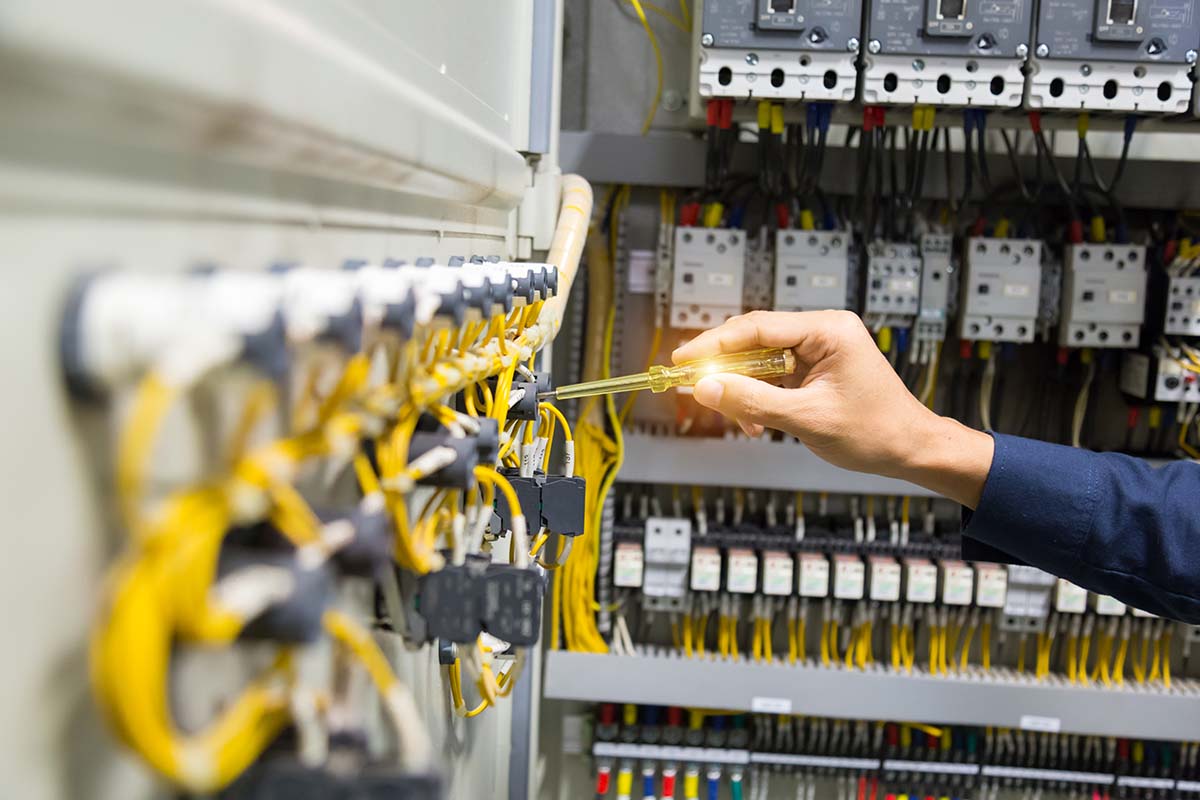Common College Degrees of Electricians
Electricians are trade-skill professionals who install and maintain power sources and electrical technology. Training is typically hands-on through an apprenticeship or internship, and licensure depends on the state you work in.
Employers don’t usually require electricians to hold a college degree, but relevant certifications, apprenticeships, and a state contractor license are required to work. Some professional electricians choose to pursue higher education to better position themselves for increased job opportunities and earning potential.
Electricians with a college degree can earn over $70,000 annually, which is about $20,000 more than electricians without a Bachelor’s degree and just the previously listed relevant certifications and apprenticeship experience. Going back to school can seem overwhelming.
Even if it has been years since you’ve been in a classroom, you think you can’t due to where you are in your life, your financial situation, or you just never felt school was the right fit for you, a Bachelor’s degree is still possible.
Many schools offer college programs online that can be tailored to suit your life and align your professional growth with your values. Take a look at three common college degrees professional electricians choose to earn.
Electrical Technology
Electricians work with systems that conduct electrical charges and produce electricity. Studying in an electrical technology degree program prepares students to maintain electric voltage systems and their parts and to install wiring systems and circuit boards.
Electrical technology also involves the study of electrical distribution systems. Earning a degree in electrical technology prepares you to diagnose wiring issues, consult with clients about electrical problems, install new wiring systems, update electrical systems, maintain circuit boards, and use specialized electrical equipment.
Professional electricians are expected to provide state-of-the-art electrical services for residential and commercial properties with quality workmanship and safety in mind. The professionals at Corbin Electrical Services have years of experience specializing in home upgrades, new construction, and custom residential electric design and installation.
The electric company provides the installation of new electrical wiring, wall panels, new circuit breakers, ambient lighting, dimmer switches, attic fans, smoke detectors, landscape design services, pool lighting, dedicated power for pools and hot tubs, and other electrical needs. Whether it’s time for electrical upgrades or to experience a fully integrated smart home, the electrical contractor is transparent about the electrical requirements and anticipated costs of all electrical projects.
Electrical Engineering
The study of electrical engineering focuses on the design of equipment, devices, and systems that operate on electricity. Electrical engineers are responsible for manufacturing electrical equipment, ensuring the equipment is safe for consumers, user-intuitive, and durable. They learn all the components of an electric system and how to handle the necessary equipment for power generation, electronic communication, and energy distribution. Electrical engineering professionals are responsible for developing new electrical systems, creating innovative electrical processes, analyzing electrical functions, and developing project plans using specialized software.
It’s important to choose a higher education path that plays to your strengths and educational goals. The best way to choose the right college and demonstrate why you’re the best fit for admissions teams is to work with a hand-matched college admissions consultant. An Empowering college admissions advisor can help you make sense of the admissions process and work with you every step of the way to improve your chances of admittance into your dream school.
Admissions advisors help with application essays, navigating financial aid and scholarships, internship placement, college admissions committee reviews, and college admissions counseling. Taking advantage of college counseling is the best way to lay the foundation of your educational journey.
Computer Engineering
Another common college degree for electrical pros is computer engineering. This area of study focuses on developing computer hardware and integrations with computational science components. Computer engineering students learn how to embed computers in machines, build networks, and develop new, more efficient hardware that can accomplish high-level objectives. They also learn how computer software functions with hardware.
Specialties within computer engineering include machine intelligence, biomedical engineering, cybersecurity, networking, and design automation. Coursework in this degree program includes AI and robotics, advanced mathematics, physics, electronic circuit design, microprocessor design and interfacing, and micro electrical-mechanical systems engineering.
Obtaining licensure as an electrician varies by state. Some states require specific experience and the passing of a state exam to obtain a license. The state exam assesses knowledge of local and state codes as well as the National Electrical Codes and how to operate and use electrical equipment according to OSHA standards.




















